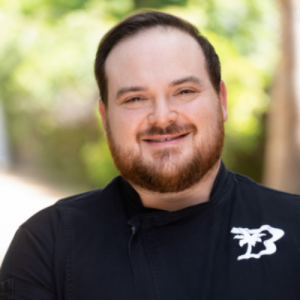






Beachside Teen Treatment Center
Treatment Focus
This center treats substance use disorders and mental health conditions. You'll receive individualized care catered to your unique situation and diagnosis, learn practical skills for recovery, and make new connections in a restorative environment.
Primary Level of Care
Offering intensive care with 24/7 monitoring, residential treatment is typically 30 days and can cover multiple levels of care. Length can range from 14 to 90 days typically.
Claimed
Recovery.com has connected directly with this treatment provider to validate the information in their profile.
Treatment Focus
This center treats substance use disorders and mental health conditions. You'll receive individualized care catered to your unique situation and diagnosis, learn practical skills for recovery, and make new connections in a restorative environment.
Primary Level of Care
Offering intensive care with 24/7 monitoring, residential treatment is typically 30 days and can cover multiple levels of care. Length can range from 14 to 90 days typically.
Provider's Policy
Costs may very due to program length and insurance benefits. Most major HMO and PPO plans are accepted. Please contact Beachside Teen Treatment Center to hear more about using insurance to cover treatment.
Beachside Teen Treatment Center
Beachside Teen Treatment Center
About Beachside Teen Treatment Center
Beachside Teen Treatment Center offers a residential treatment program for mental health and co-occurring behavioral disorders, including substance abuse, designed for adolescents and teens ages 12-17. They offer individualized programming in a small group setting for up to 6 clients at a time, blending evidence-based and experiential therapies with individual, group, and family therapy sessions.
A Tranquil Environment
Their program serves as a tranquil rehabilitation haven for adolescents struggling with addiction, substance abuse and co-occurring mental health disorders, with a beautiful residential facility offering panoramic views of the Pacific Ocean in Malibu, California. Their individualized multi-discipline approach embodies the key principles of mind-body health, offering care and support from a compassionate team of diverse professionals.
Luxury amenities include a safe home-like environment fostering mind-body health with components such as physical activity in a natural environment. The state-of-the-art facility is privately located cliff-side, overlooking the Pacific Ocean coastline with amenities such as an ocean-view pool and organic gardens. An on-site executive chef provides nourishing meals that are customized to meet personal preferences while encouraging healthy nutrition. Each client has a comfortable queen-sized bed with space for up to 6 co-ed clients at a time, allowing for a balance of individual attention and small, intimate group settings.
Mind-Body Wellness
Balanced and structured days with well-rounded schedules offer a variety of experiential therapies tailored to teens and adolescents. Treatment consists of behavioral therapies such as cognitive behavioral therapy (CBT), dialectical behavior therapy (DBT), emotional intelligence, regulation, and anger reduction therapy groups, coping and life skills. Psychodynamic therapies include trauma and post traumatic stress disorder (PTSD) groups, in addition to interpersonal therapy addressing topics such as healthy relationships and boundaries.Clients may participate in regular therapy and multi-family group therapies and work on personal development in areas including mindfulness, positive psychology, and acceptance and commitment therapy (ACT) group. Outdoor and expressive therapeutic activities range from art therapy, yoga, meditation, and music therapy to adventure outings, surf therapy, horticulture, and fitness.
Education and schooling are made a priority with a specialized curriculum individually designed for each client while working in tandem with their school to ensure each individual is in line with their schooling requirements. Aftercare resources and coordination are also offered to clients and their families for ongoing support needs.

Center Overview
Treatment Focus
This center treats substance use disorders and mental health conditions. You'll receive individualized care catered to your unique situation and diagnosis, learn practical skills for recovery, and make new connections in a restorative environment.
CARF Accredited
CARF stands for the Commission on Accreditation of Rehabilitation Facilities. It's an independent, non-profit organization that provides accreditation services for a variety of healthcare services. To be accredited means that the program meets their standards for quality, effectiveness, and person-centered care.

Insurance Accepted
Cash Pay Rates
Estimated Cash Pay Rate
Center pricing can vary based on program and length of stay. Contact the center for more information. Recovery.com strives for price transparency so you can make an informed decision.
Meet Your Care Team

Tonda Williams
Director of Admissions

Janasha Austin
Facility Manager

Benita Grauman
Primary Therapist
LCSW

Lala Dhobi
Art Therapy Instructor

Kyle Craft
Executive Chef
Levels of Care






Your Care Options
Specializations
Adolescents
Teens receive the treatment they need for mental health disorders and addiction, with the added support of educational and vocational services.
Anxiety
Anxiety is a common mental health condition that can include excessive worry, panic attacks, physical tension, and increased blood pressure.
Co-Occurring Disorders
A person with multiple mental health diagnoses, such as addiction and depression, has co-occurring disorders also called dual diagnosis.
Depression
Symptoms of depression may include fatigue, a sense of numbness, and loss of interest in activities. This condition can range from mild to severe.
Who We Treat
Adolescents
Teens receive the treatment they need for mental health disorders and addiction, with the added support of educational and vocational services.
LGBTQ+
Addiction and mental illnesses in the LGBTQ+ community must be treated with an affirming, safe, and relevant approach, which many centers provide.
Approaches
Individual Treatment
Individual care meets the needs of each patient, using personalized treatment to provide them the most relevant care and greatest chance of success.
Non 12 Step
Non-12-Step philosophies veer from the spiritual focus of the 12-Steps and instead treat the disease of addiction with holistic or secular modalities.
Twelve Step
Incorporating spirituality, community, and responsibility, 12-Step philosophies prioritize the guidance of a Higher Power and a continuation of 12-Step practices.
Therapies
1-on-1 Counseling
Patient and therapist meet 1-on-1 to work through difficult emotions and behavioral challenges in a personal, private setting.
Meditation & Mindfulness
A practiced state of mind that brings patients to the present. It allows them to become fully aware of themselves, their feelings, and the present moment.
Mindfulness Therapy
This ancient practice can be mental, emotional, and even spiritual. In meditation, you focus your attention on the present moment without judgement.
Adventure Therapy
This experiential approach uses the physical and emotional challenges of outdoor activities as tools for personal growth.
Art Therapy
Visual art invites patients to examine the emotions within their work, focusing on the process of creativity and its gentle therapeutic power.
Equine Therapy
Guided interactions with trained horses, their handler, and a therapist can help patients improve their self-esteem, trust, empathy, and social skills.
Expressive Arts
Creative processes like art, writing, or dance use inner creative desires to help boost confidence, emotional growth, and initiate change.
Family Therapy
Family therapy addresses group dynamics within a family system, with a focus on improving communication and interrupting unhealthy relationship patterns.
Conditions We Treat
Personality Disorders
Personality disorders destabilize the way a person thinks, feels, and behaves. If untreated, they can undermine relationships and lead to severe distress.
ADHD, ADD
ADHD is a common mental health condition caused by dopamine imbalance. Common symptoms include inattention, hyperactivitiy, and impulsivity.
Anger
Although anger itself isn't a disorder, it can get out of hand. If this feeling interferes with your relationships and daily functioning, treatment can help.
Anxiety
Anxiety is a common mental health condition that can include excessive worry, panic attacks, physical tension, and increased blood pressure.
Bipolar
This mental health condition is characterized by extreme mood swings between depression, mania, and remission.
Depression
Symptoms of depression may include fatigue, a sense of numbness, and loss of interest in activities. This condition can range from mild to severe.
Post Traumatic Stress Disorder
PTSD is a long-term mental health issue caused by a disturbing event or events. Symptoms include anxiety, dissociation, flashbacks, and intrusive thoughts.
Self-Harm
The act of intentionally harming oneself, also called self-injury, is associated with mental health issues like depression.
Stress
Stress is a natural reaction to challenges, and it can even help you adapt. However, chronic stress can cause physical and mental health issues.
Substances We Treat
Alcohol
Using alcohol as a coping mechanism, or drinking excessively throughout the week, signals an alcohol use disorder.
Co-Occurring Disorders
A person with multiple mental health diagnoses, such as addiction and depression, has co-occurring disorders also called dual diagnosis.
Cocaine
Cocaine is a stimulant with euphoric effects. Agitation, muscle ticks, psychosis, and heart issues are common symptoms of cocaine abuse.
Drug Addiction
Drug addiction is the excessive and repetitive use of substances, despite harmful consequences to a person's life, health, and relationships.
Ecstasy
Ecstasy is a stimulant that causes intense euphoria and heightened awareness. Abuse of this drug can trigger depression, insomnia, and memory problems.
Psychedelics
Hallucinogenic drugs—like LSD—cause euphoria and increased sensory experiences. When abused, they can lead to depression and psychosis.
Opioids
Opioids produce pain-relief and euphoria, which can lead to addiction. This class of drugs includes prescribed medication and the illegal drug heroin.
Prescription Drugs
It's possible to abuse any drug, even prescribed ones. If you crave a medication, or regularly take it more than directed, you may have an addiction.
Languages
Aftercare
Care Designed for Your Needs
Personal Amenities
Amenities
Special Considerations
Healthy Meals are provided
Great food meets great treatment, with providers serving healthy meals to restore nutrition, wellbeing, and health.
Activities
Off-Site Activities

What people are saying
Treatment
5.0
Accommodations
5.0
Food & Nutrition
5.0
Value
4.9
Pros
- Supportive Aftercare (4)
- Beautiful Location (4)
- Very Informative (3)
- Friendly and Competent Staff (3)
Miriam
Treatment in 2021 • (30 days) • Reviewed 01/26/22
Loved One of a Former Client
Mike G.
Treatment in 2020 • (30 days) • Reviewed 01/17/22
Loved One of a Former Client
Lynda Rodriguez
Treatment in 2020 • (30 days) • Reviewed 01/10/22
Loved One of a Former Client
Indgea Gerald
Treatment in 2019 • (30 days) • Reviewed 08/08/21
Loved One of a Former Client
Nicole
Treatment in 2021 • (30 days) • Reviewed 07/20/21
Loved One of a Former Client





